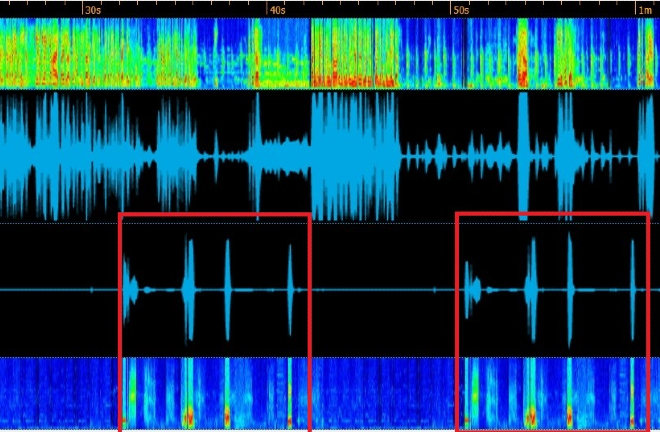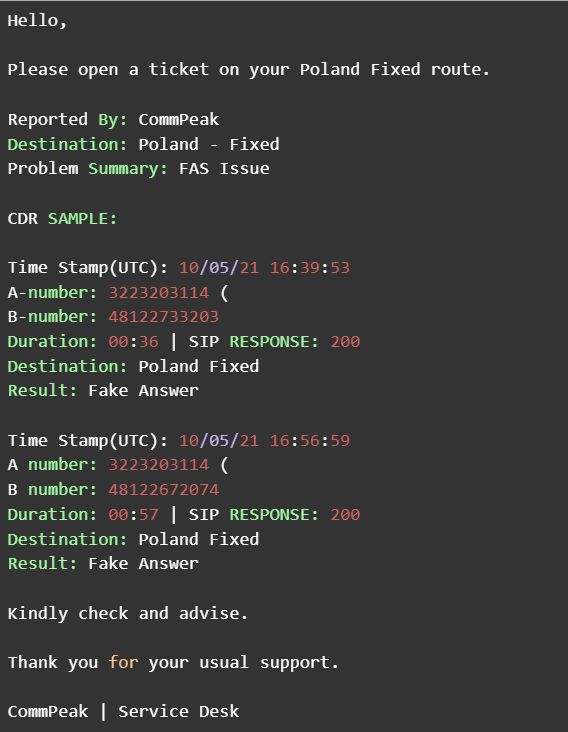Spoiler Alert: You can’t. But you can minimize the potential.
When Voice over Internet Protocol (VoIP) was first introduced to the market, it gave businesses the power to make cheaper phone calls worldwide without being tied down by bulky hardware. However, as with all new technological advancements, fraudsters developed ways to manipulate this otherwise helpful communication solution.
The standard practice within the VoIP industry is for operators to begin charging callers only after a live connection has been made, whether it’s a callee or recorded voicemail that answers the call. To exploit this policy, telecom companies will illegally implement False Answer Supervision (FAS), Looping, and other methods to extend connection times as long as possible, even if it’s by a few seconds.
Time-Theft Scheme #1: Common FAS
- Charged for fake ringback tone
- Charged for silence
- Fake voice message or audio file
- Charged after the call has ended
The most well-known VoIP fraud, FAS, occurs when a caller (Party A) attempts to connect to a callee (Party B). Instead of routing the call smoothly between the two parties’ devices, the telecom carrier will answer and begin playing a different, fake ringtone. This routine leaves Party A under the impression that they are still waiting for Party B to answer the phone.

In reality, the operator charges the caller for listening to this false ringtone. Dishonest operators will also play a voicemail or a protracted audio clip. Other forms of FAS are less sophisticated and merely involve billing Party A before Party B answers the phone or continuing to charge for a few seconds after Party B ends the call.
The VoIP operator only makes a couple of cents per call, perhaps even less. Combined, however, the extra time adds up to significant income. Multibillion-dollar telecommunication company T-Mobile, for example, was recently fined $40 million for their long-term FAS practices.
How to Identify Common FAS
Your VoIP provider should ideally provide you with a dashboard that allows you to monitor your spending effortlessly. So if you believe your call was answered with a fake ringtone or voicemail, you should verify that you were charged for the call.
It’s challenging to recognize FAS as it’s happening, so if you’re suspicious, make sure to check.

Time-Theft Scheme #2: Late FAS aka Voice Looping
Unlike regular FAS, voice looping is a more sophisticated process, taking place after the parties have begun speaking. While chatting, the VoIP operator will secretly record Party B. After a few minutes, they will disconnect Party B and start playing the recording from the beginning of the conversation while Party A is still on the phone.
Unaware of what has just happened, the caller assumes they are still talking to the callee. Usually, this caller becomes extremely confused, not understanding why the callee is repeating the same thing said moments earlier. Party A wastes their time attempting to reestablish the conversation with someone who is no longer actually on the phone.

Although the operator no longer has to pay for the phone call once they drop Party B’s connection, they continue to charge Party A for “speaking” with the recorded audio clip. Ultimately, the goal is to trick the caller into talking as long as possible before they understand the situation and hang up.
How to Identify Late FAS aka Voice Looping
Voice graphs are a convenient method of checking for voice looping, especially when the conversation is conducted in a language you don’t understand. Telecom providers can easily visualize the instances when audio clips repeat themselves by analyzing these graphs.

It is next to impossible for someone to repeat the exact phrase with the same frequency even once, so when it happens multiple times, it’s a clear sign of voice looping. A trustworthy telecom provider will be on the lookout for these types of occurrences and take action when necessary.
Time-Theft Scheme #3: Callee Impersonation
Another type of fraud known throughout the VoIP industry is callee impersonation. Wholesale operators will pair up with contact centers and route calls directly to them. Representatives will pretend to be the intended Party B and get Party A to stay on the line as long as possible. This sham usually goes unnoticed by sales teams that make cold calls to unknown leads. The deceptive VoIP vendor and the contact center will then split the revenue.
The good news is that this type of FAS is not very popular due to the cost and the language barrier. Impersonation requires speaking the language of the callee, which requires expensive technology or extra employees, offsetting any profits.
Due to privacy policies, CommPeak cannot share recording samples of these calls.
What To Do To Avoid Time-Theft
Unfortunately, there is no way to completely protect your calls from this type of trap.
Nevertheless, there are strategic decisions you can make that significantly reduce the chances of being taken advantage of, ensuring you only pay for genuine connections.
Choose a trustworthy telecommunications provider that:
- Provides direct calling routes
- Creates a method for reporting FAS and looping incidents
- Consistently demonstrates fast resolution time
- Terminates relationships with fraudulent carriers
CommPeak: Taking Action to Ensure Your Resources Are Protected
CommPeak focuses on bringing our customers the highest quality, direct calling routes with unmatched connection rates. Our easy-to-use dashboard tracks every call you make along with your spending, so you can be sure you only pay for what you use.
We take extra precautions when working with local vendors and encourage you to report any suspicious activity. We regularly communicate with these vendors, alerting them when there’s an issue with FAS or voice looping, advising them to fix it or cease as soon as possible.

Furthermore, we terminate the working relationship if our team discovers that the operator has not corrected the problem or refuses to do so. CommPeak does everything to ensure customers don’t have to deal with the hassle of dishonest partners. With us, call center operations run smoothly and stress-free.
If you’re fed up with your provider not protecting you against VoIP fraud, contact us today.


